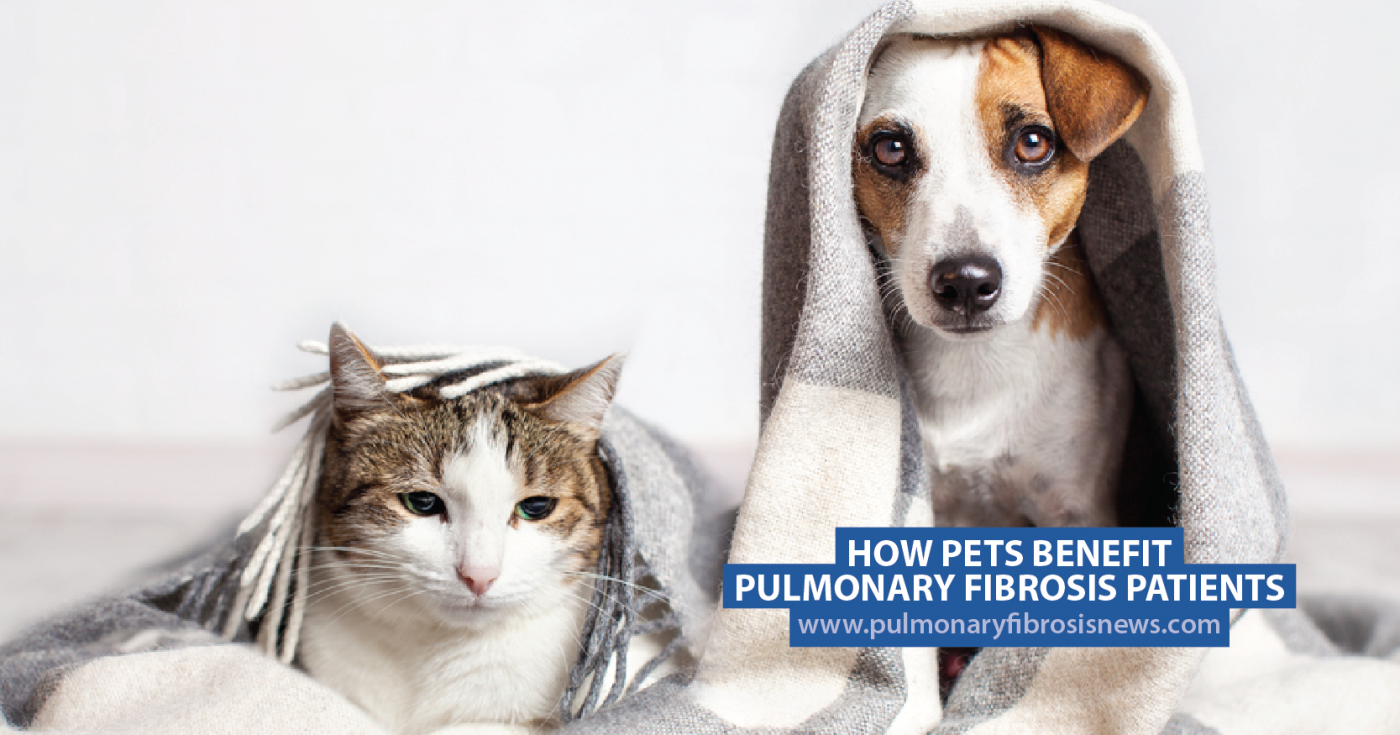How Pets Benefit Pulmonary Fibrosis Patients
Written by |

For those of you who are animal lovers, you probably already know that pets can be remarkable companions through illness, injury, loss or throughout any type of recovery period.
There are many testimonials and personal stories online about how pets have helped a patient through chronic illness, injury or even in the event of an emergency. If trained properly, dogs can also detect when an emergency or something unusual is happening. There are dogs that are trained to recognize and support someone during a seizure, or to protect individuals who are blind from dangers, such as cars when crossing a busy intersection. There is also amazing literature being released on the benefits of dogs supporting children with autism; encouraging their focus and calming them when in an overstimulating environment, such as a busy classroom, shopping mall or playground.
On a smaller, more micro level, animals can also help individuals with a chronic illness. Below are some of the ways that our furry friends (or as some like to call them, “furbabies”) can help just by being around and being present with patients.
They provide a reason to get out of bed in the morning.
Some days this may be less appreciated than others, but overall, this is important for someone with a chronic illness. Especially if that illness is coupled with depression or chronic pain, mobilization is usually encouraged by physicians and having to get up to let the dog outside, or feed the cat, is an encouraging reason to get up in the morning. Regardless of how you are feeling, pets need us and they reciprocate that need by showing us love and companionship.
MORE: The invisible impact of trauma on pulmonary fibrosis patients
They create a social connection to other pet lovers.
There are so many ways to be social with a dog — think dog parks, fundraising events, doggy playdates and more! These are just some of the ways that having a pet, particularly a dog, can expand your social network. It’s easy to feel isolated from others who are living their lives as you would be if you didn’t have a chronic illness. That being said, pets don’t care about oxygen tubing, IVs, scars, weakness or abilities that might differ from the next person. They love you as you are, and just want to be with you.
They can reduce anxiety.
Having a dog around has been known to reduce anxiety in patients with chronic illnesses, especially if that dog is specially trained to support someone with a disease. For example, an epilepsy patient will often feel less anxious when they have a dog that’s been trained to get help in the event of an emergency. It can be an added security blanket, offering comfort knowing that someone else is around and may be able to alert help if needed.
Pets can be an incredible source of companionship — offering wet-nose kisses, snuggles and someone to lean on (literally and figuratively) when things seem overwhelming. Pets listen to us, are present when people cry and offer comfort with no expectation of anything in return. They are the best keepers of secrets, love unconditionally and are always excited to see you, which creates an incredible feeling of companionship.
They can cause laughter and bring joy.
This is so important for people with chronic illnesses or diseases that cause heavy conversations, such as life or death decisions. It can become easy to lose sight of the smaller, more joyful things in life such as laughter and hope, but animals are a good reminder. When a dog is chasing a toy, barking at a stationary object or jumping for joy when you return home, it’s hard not to smile.
MORE: Six ways to get the most out of your doctor’s appointments
Pulmonary Fibrosis News is strictly a news and information website about the disease. It does not provide medical advice, diagnosis or treatment. This content is not intended to be a substitute for professional medical advice, diagnosis, or treatment. Always seek the advice of your physician or another qualified health provider with any questions you may have regarding a medical condition. Never disregard professional medical advice or delay in seeking it because of something you have read on this website.



